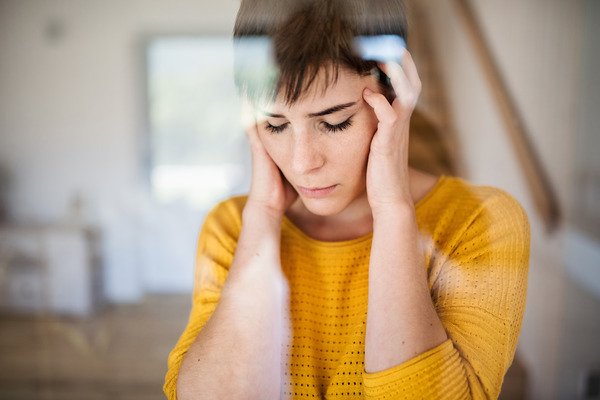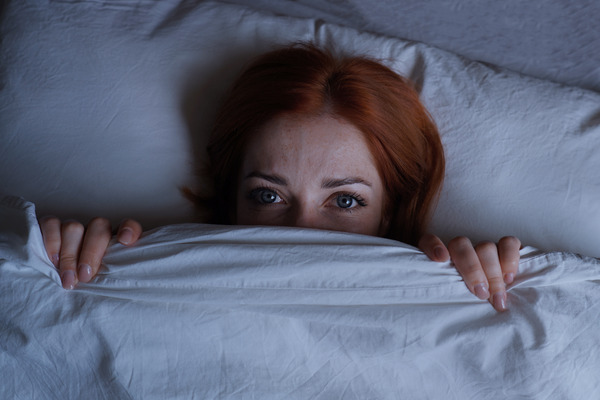How does depression affect you? What is the behavior of a person with depression? Discover how depression changes people.
Most people know the psychological effects of depression, but what many do not know is that this disorder can also end up affecting the personality and brain structure of the person who suffers from it. In fact, generally speaking, people with depression can become more neurotic, more dependent on others and even more reflective. Even so, when recovering from this disorder, most people usually ‘recover’ the personality they had before suffering from this pathology. So how does one change? person with depression ?
Does depression change people?
When the symptoms of this disorder are experienced, Depression does change people and their personality because they behave or say things that in reality, if they were not under the effects of this condition, they would not do or say.
What is the behavior of a person with depression?
The depressed people They may undergo the following changes in their personality
- Concern : The people with depression They may feel very restless or stressed at certain times. In fact, despite the symptoms they suffer from depression (which usually involve sadness or a low level of energy and motivation), they may feel irritable, frustrated, angry and even impulsive due to this mental restlessness.
- Isolation: Even the most extroverted people can isolate themselves from others and spend too much time alone, shying away from social contact. These types of behaviors usually make the symptoms related to this disorder even more serious.
- Lethargy: most of people with depression They usually feel without motivation or desire to do anything. In fact, it is as if they slow down, they think and speak more slowly, they often seem to be ‘slower’ when walking or performing certain tasks, etc.
- They procrastinate : The pessimism or negativity typical of depression often causes people to end up procrastinating many of their tasks or responsibilities. Thus, although those who suffer from depression know that they can do certain things to improve their mood, in reality they often put them aside and procrastinate due to the negativity and lack of energy they experience.
- Bad nutrition : Many people stop eating when their mood is low. On the other hand, some people often ‘remedy’ these negative feelings through comfort foods. A person with depression You tend to change your eating habits.
- They have trouble sleeping : During depression, sleep may become fragmented. Studies show that lack of sleep has a very negative effect on our mood. The depressed people In addition, they often suffer changes in their sleep patterns, experiencing problems falling asleep or waking up too early in the morning.
These are some of the changes that a person can experience. person with depression If you think this may be your case, it is important that you go to a professional psychologist to treat this disorder.

What is the brain of a person with depression like?
Research on depressive disorder shows that there are differences in the volume and activity of the brain when a person is depressed:
- Brain shrinkage: Some specific regions of the brain may decrease in depressed people Mainly, the hippocampus (associated with memory and learning), the thalamus (which transmits the information we collect to the cerebral cortex), the amygdala (responsible for regulating emotions and memory), and finally the prefrontal cortices. (which control cognitive functions such as attention, impulse control, and emotional reactions). However, this contraction may be reversible.
- Brain inflammation: Studies show that brain inflammation during depression may be related to the amount of time a person is depressed This inflammation can cause the death of brain cells, leading to different complications. For example, depressed people have less neuroplasticity, which means that the brain has more difficulty changing its structure.
- Structural differences: There are different neurotransmitters that are associated with depression. In the brain of a person with depression We usually find low levels of serotonin, dopamine and norepinephrine. This may mean that there is little connectivity in our brain, making attention and emotion regulation more difficult.
- Lack of oxygen : Depression is related to the reduction of oxygen in the body. This effect is due to the fact that the people with depression They often experience changes in their breathing, making it much more superficial. In general, the brain is very sensitive to reduced oxygen, in fact, this can cause inflammation, injury to brain cells and even death. When this happens it causes people to suffer negative effects on development, learning, memory and mood.
Luckily, all of these effects of depression , whether at the brain level or in behavior or personality, can be reversed. Research shows that through therapy and learning different coping strategies, people can recover from depression.









